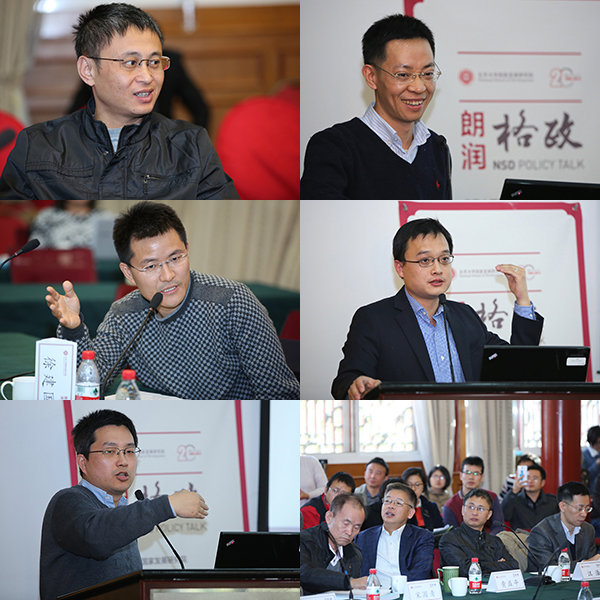
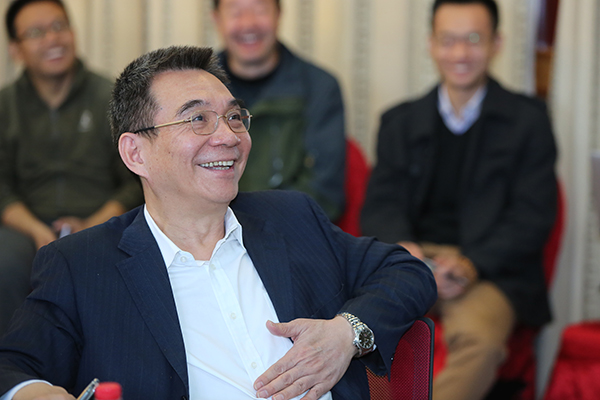
On 14th November, 2014, a seminar marking the 20th anniversary of the publication Miracle of China was successfully held as part of the NSD Policy Talk series in the Wanzhong Building at the National School of Development (“NSD”), Peking University. Miracle of China is a monograph published by Lin Yifu, Cai Fang and Li Zhou in 1994. Using the theory of comparative advantage, the book explains both why the prior strategy development of China in heavy industry failed in past and the cause of rapid economic development after reform and opening up. It predicted that China’s economy will catch up with US in 2015 according to Price Purchasing Parity. Whilst the prediction was widely thought to be too optimistic, history shows its accuracy. The book with its amazing predictive power and strong explanatory power has become one of the most influential economic research monographs in China and has been translated into many languages.
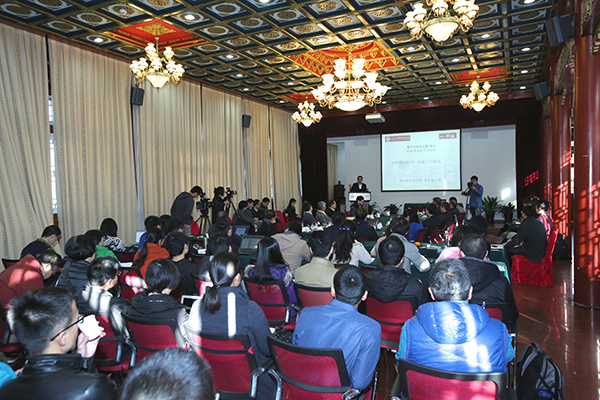
In this 20th anniversary of publication, China’s economic trends are still provoking many debates, though the seminar mainly explored the past, challenges and future of China economic miracle. The meeting was divided into two parts: a public discussion in the morning which was hosted by Professor Huang Yiping, Deputy Dean of the NSD and an academic discussion in the afternoon hosted by Wang Hao, NSD Professor. Yao Yang, NSD Professor gave the first speech.
The theme of discussion in the morning was ‘Next Steps for the Chinese Economy’. Professor Lin Yifu, former Senior Vice President and Chief Economist at the World Bank, Standing Committee Member of the CPPCC, Vice President of the All-China Federation of Industry and Commerce, State Department Counselor, Honorary President of NSD pointed out in his speech that the reason China maintained its rapid growth in the past 35 years was that it made advances in its underdeveloped technology and upgraded its industry; the so-called ‘late-comer advantage’. This latecomer advantage has always existed. The reason for previous slow development was due to its strategy of catching-up (to developed economies) and giving up the late-comer advantage. Similar problems occurred in many socialist countries. They also wanted to transition, but adopting the ‘Washington consensus’ had a poor result on development. China adopted a double-track pricing system to ensure steady and fast economic growth, but also accumulated a lot of problems. China has the potential to grow at an average rate of 8% until 2028 if it stays on the path set by the Third Plenary Session of the 18th Central Committee to further deepen reforms and eliminate market distortions. Any developing country can emulate the Chinese miracle with the proper development strategy.
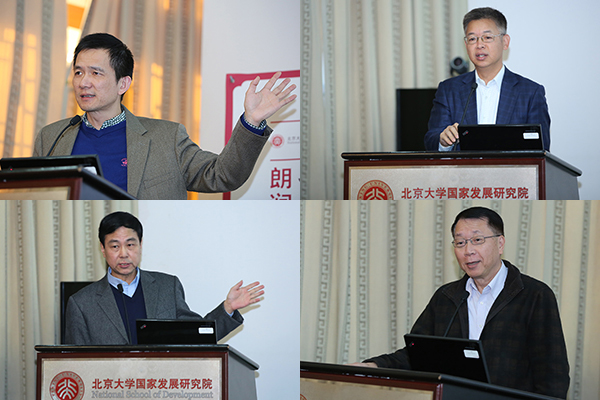
Lu Feng, Chief of CMRC, Peking University and NSD Professor summarized the development process, main contribution and cause of success from Professor Lin Yifu’s economic thought, he also put forward some thinking and suggestion on these issues, such as how to think about the importance of system, how to look at the role of property rights and competition and how to summarize the new experience from reform and opening. Lei Dingming, Professor of Economy Department, Hong Kong University of Science & Technology forecasted the growth rate of China’s GDP in the future 30 years under the assumption of different investment rate and total factor productivity growth. He believes that China still has high growth potential, but it needs to constantly improve its total factor productivity. Zhang Weiying, NSD Professor said that in human history, only the United Kingdom and United States have really created an economic miracle and China should not be overly confident. The market is the most effective system in achieving comparative advantage and there can’t be too much emphasis on government power. Technological progress comes from the entrepreneurial spirit, and industrial policy is not helpful for the development of entrepreneurial spirit. Song Guoqing, Professor of NSD thought China current financial resources can support its mid-rapid growth in ten years, but it is still uncertainty whether it can support the over 20 years.
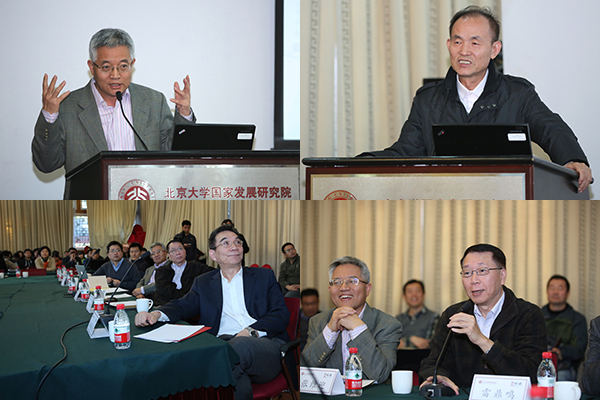
The theme of academic discussion in afternoon was Structure, Policy and Growth, 5 research articles were reported in discussion. Wang Yong, associate professor of Hong Kong University of Science & Technology explained, through a theoretical model, that the high entry barrier of production service department may not affect economic growth in low-income countries, but it will affect middle-income countries in economic transformation and industrial upgrading. Xi Tianyang, NSD Associate Professor discussed the relationship between democracy and growth, and put forward some implications. Yao Yang, Dean of NSD through the theoretical model and empirical test pointed out when these two conditions are met, the fixed exchange rate system can promote growth. Xu Jianguo, Professor of NSD opened capital account according to the outflow of capital flows which is divided into open and internal flow, and found that two types of open impact on growth are different. Yu Miaojie, Professor of NSD introduced the establishment of national-level development zone has obvious promoting effect in enterprise productivity promotion and industrial upgrading.
At the end of the meeting, Professor Lin Yifu pointed out that there are many worthwhile areas to study during China economic transformation which should be studied and discussed more. In the warm applause of the participants, the meeting was concluded.
